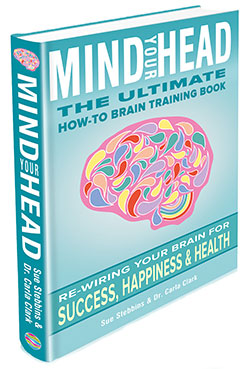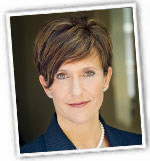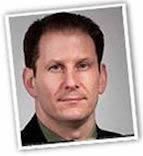Cognitive conceptions of language and the development of autobiographical memory.
John Sutton
Page 1
Source: http://www.phil.mq.edu.au/staff/jsutton/CognitiveConceptionsofLanguage.htm
Abstract
The early development of autobiographical memory is a useful case study both for examining general relations between language and memory, and for investigating the promise and the difficulty of interdisciplinary research in the cognitive sciences of memory. An otherwise promising social-interactionist view of autobiographical memory development relies in part on an overly linguistic conception of mental representation. This paper applies an alternative, ‘supra-communicative’ view of the relation between language and thought, along the lines developed by Andy Clark, to this developmental framework. A pluralist approach to current theories of autobiographical memory development is sketched: shared early narratives about the past function in part to stabilize and structure the child’s own autobiographical memory system.
1. Introduction: learning to remember
-
The 12-year-old son of a developmental psychologist looked up from his homework to ask his mother’s help with a writing assignment, asking "Mom, what is my most important memory?" (Engel 1999, p.24). How can another person have direct and intimate access to my most significant memories? Autobiographical memory for events in the personal past is a capacity which develops in a shared environment. Its content as well as its expression is influenced by that context. From its initial stages in the pre-school years, autobiographical memory grows out of interpersonal exchanges.
Developmental studies are a rich and flourishing area within the sciences of memory. Despite great variety in methods and assumptions, most schools of developmental thought are thoroughly interdisciplinary, calling to different degrees on neuropsychology and social psychology as well as on cognitive psychology; and most accept, in some explanatory contexts at least, the significant causal influence over time of the remembering environment. Learning to remember in company, or joint reminiscing, is one of the core forms of shared attention in childhood, a form which is directed specifically towards the past even when it also serves current or action-oriented purposes.
"Autobiographical memory" (AM), often called "personal memory" by philosophers, refers to explicit recollections of past events and episodes in a personal history. Although consensus on a more precise working definition is surprisingly hard to find, a fairly orthodox account is that of William Brewer (1996), who sees AM as a reliving or reviving of my own past phenomenal experience, with the additional knowledge that I’ve had that experience before. Perner (2000, p.307) sees AM as a more sophisticated capacity, which "entails a reflection on past events aspast events, as events that one knows (conscious, explicit memory) and as personally experienced (episodic, autonoetic memory)"(footnote).
Just how might the sharing of memories, both in language and in non-linguistic practices , influence the organization of early AM? An approach to the question, I suggest, requires tighter integration between the developmental psychology of memory and general cognitive scientific inquiry into the nature and the vehicles of mental representation. Current views in the developmental literature, however, look on initial examination to be in some tension with prevailing assumptions in cognitive science about the priority of thought over language. In this paper, then, I sketch an inchoate interpretation of the two fields, and of possible relations between them, which might be mutually beneficial.
Specifically, I want to apply to memory research one particular cognitive conception of language, the ‘supra-communicative’ view recently developed by Andy Clark and others: on this view, language is "the ultimate artifact", the supreme human tool not just for communicating thoughts, but for thinking (Clark, 1997, chapter 10). Clark’s vision of language as a powerful form of cognitive ‘scaffolding’ draws on developmental research influenced by the Soviet psychologist Lev Vygotsky, whose work also inspires the ‘social-interactionist’ school of AM research. This important group, which includes Robyn Fivush, Katherine Nelson, and others, argues (in the extreme) that "early reminiscing begins as an interpersonal process and only becomes intrapersonal over time" (Engel, 1999, p.27). They thus set the study of culture, narrative genre, and personality in the child’s linguistic environment at the heart of the investigation into the origins of AM. In a sense, then, given this shared intellectual heritage, I am not even trying to link two distinct frameworks, but simply to render shared commitments explicit .
After a brief description of the context of this project in a broader inquiry into interdisciplinarity in memory research, I fill in a richer account of the significance of AM (section 3), before I introduce Clark’s ‘supra-communicative’ or developmental systems view by locating it in a range of cognitive conceptions of language (sections 4-5). In section 6, I identify a problem for the otherwise promising social-interactionist approach to AM development, arguing that it is compatible with a less linguisticized vision of the format of mental representation than its proponents currently prefer. The final section then applies the supra-communicative view to memory development, sketching a pluralist causal framework which gives language and narrative practices their full developmental weight without projecting the form of external symbol systems back on to the organization of the AM system itself.
This attempt to use AM development as a case study in interdisciplinary theory-construction, and in the understanding the relation between language and memory, inevitably ranges too superficially over a number of distinct specialist subdisciplines. The aim is neither to offer a thorough survey of relevant empirical investigation, nor to pin down and argue finally for a specific and precise theoretical position. I intend instead merely to point out one way of forging connections between fields of cognitive science. Even if my particular interpretation of the common features does not convince, failing to address important empirical, psychoanalytic, or philosophical issues, I hope at least to offer resources for a legitimate form of interdisciplinary inquiry which may suggest fruitful further lines of research.
We Make it Easy to Succeed
Successwaves, Intl.
Brain Based Accelerated Success Audios
 |






